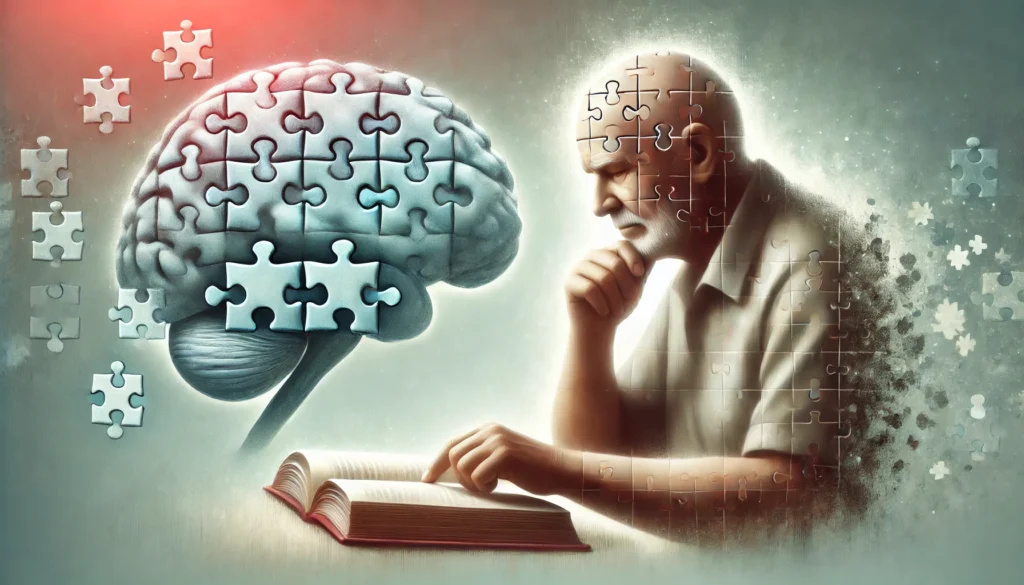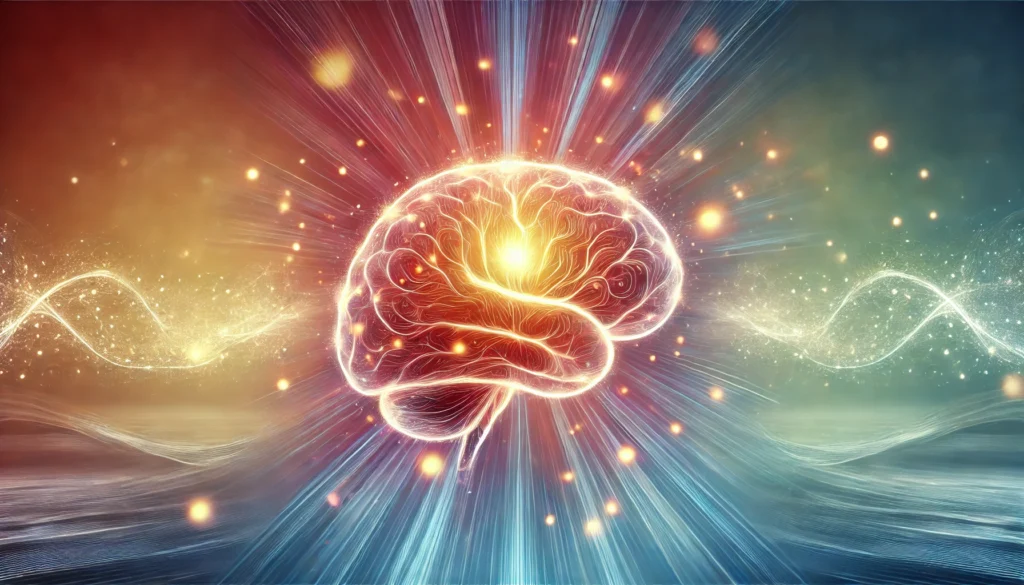Introduction
Cognitive health is a critical component of overall well-being, particularly for older adults. As individuals age, cognitive functions such as memory, attention, and problem-solving skills can experience decline. However, emerging research suggests that cognitive decline is not inevitable. By implementing targeted strategies, older adults can maintain and even improve their cognitive function. Strengthening neural pathways through various interventions such as mental stimulation, physical activity, dietary choices, and social engagement plays a pivotal role in enhancing memory and recall abilities.
You may also like: How Does Memory Change with Age? Understanding Neural Pathway Strengthening in Seniors
Memory recall, a fundamental cognitive process, involves the retrieval of stored information. Neural pathways, the intricate networks of neurons in the brain, are responsible for facilitating this process. The brain’s plasticity, or its ability to adapt and rewire itself, is key to maintaining cognitive function. The question is, can older adults actively enhance their cognitive health? Through a combination of scientifically backed methods, the answer appears to be a resounding yes.
This article explores the science behind cognitive health in older adults, examining key strategies for strengthening neural pathways and improving memory recall. By understanding the biological mechanisms of memory formation and retrieval, and by implementing lifestyle modifications, older adults can support their cognitive longevity.

Understanding Memory and Neural Pathways
Memory is a multifaceted cognitive function comprising encoding, storage, and retrieval. Encoding involves processing information and storing it in neural networks, while retrieval enables access to this stored data when needed. These processes are facilitated by complex neural pathways that involve various regions of the brain, including the hippocampus, prefrontal cortex, and amygdala.
The hippocampus, a region deep within the brain, is essential for forming and consolidating new memories. The prefrontal cortex, responsible for higher-order cognitive functions, plays a crucial role in organizing and retrieving memories. The amygdala, primarily involved in emotional processing, enhances memory retention by associating emotions with experiences.
For older adults, the efficiency of these neural pathways can decline due to factors such as reduced neuroplasticity, decreased blood flow, and the accumulation of neurotoxic proteins. However, neuroplasticity, the brain’s ability to reorganize itself by forming new neural connections, remains intact well into old age. Engaging in cognitive exercises, maintaining a healthy lifestyle, and fostering social connections can stimulate neuroplasticity and counteract memory decline.

Factors Affecting Cognitive Health in Older Adults
Several factors influence cognitive health in older adults. While genetics play a role, lifestyle and environmental factors significantly impact neural function. The following are key contributors to cognitive decline:
- Aging and Neurodegeneration
- Aging naturally leads to structural and functional changes in the brain. Gray matter volume decreases, and synaptic connections weaken, affecting memory recall and processing speed.
- Neurodegenerative diseases such as Alzheimer’s and Parkinson’s contribute to cognitive impairment, emphasizing the need for proactive cognitive health measures.
- Cardiovascular Health
- The brain requires a steady supply of oxygen-rich blood to function optimally. Poor cardiovascular health, including hypertension and atherosclerosis, can reduce cerebral blood flow, leading to cognitive decline.
- Maintaining heart health through proper diet, exercise, and blood pressure management can support cognitive function.
- Chronic Stress and Cortisol Levels
- Prolonged exposure to stress results in elevated cortisol levels, which negatively impact memory formation and retrieval.
- Stress management techniques such as mindfulness, meditation, and deep breathing exercises help reduce cortisol levels and support cognitive resilience.
- Sleep Quality and Brain Function
- Sleep is essential for memory consolidation. Older adults experiencing sleep disturbances or insomnia may struggle with memory recall.
- Establishing a consistent sleep routine and improving sleep hygiene can enhance cognitive function.
- Nutrition and Brain Health
- Certain nutrients, including omega-3 fatty acids, antioxidants, and vitamins B and D, play a crucial role in cognitive health.
- A diet rich in fruits, vegetables, whole grains, and lean proteins supports brain function and reduces the risk of cognitive decline.

Strategies for Strengthening Neural Pathways and Enhancing Memory Recall
- Cognitive Training and Mental Stimulation
- Engaging in brain-challenging activities such as puzzles, chess, reading, and learning new skills promotes neuroplasticity.
- Digital cognitive training programs designed for memory enhancement have shown promising results in improving recall abilities.
- Physical Exercise and Neurogenesis
- Regular physical activity, particularly aerobic exercises, increases blood flow to the brain, promoting the growth of new neurons (neurogenesis).
- Activities such as brisk walking, yoga, and strength training enhance cognitive performance and reduce the risk of neurodegenerative diseases.
- Social Interaction and Emotional Well-Being
- Social engagement stimulates cognitive function by reinforcing neural networks associated with communication and empathy.
- Participating in community activities, volunteering, or joining discussion groups fosters emotional well-being and mental acuity.
- Mindfulness and Meditation
- Meditation practices improve attention span, working memory, and emotional regulation.
- Mindfulness exercises reduce stress-related cognitive impairments and enhance overall brain function.
- Optimizing Sleep Patterns
- Ensuring adequate sleep quality and duration aids memory retention and cognitive processing.
- Limiting screen exposure before bedtime and creating a restful sleep environment can improve sleep quality.
- Dietary Interventions for Brain Health
- The Mediterranean diet, rich in healthy fats, antioxidants, and plant-based nutrients, has been linked to improved cognitive function.
- Incorporating foods such as salmon, walnuts, blueberries, and leafy greens supports memory and overall brain health.
Can Older Adults Reverse Cognitive Decline?
The question of whether older adults can reverse cognitive decline has been a topic of extensive research. While complete reversal may not always be possible, significant improvements in cognitive function can be achieved through targeted interventions. Studies have shown that engaging in lifelong learning, maintaining an active lifestyle, and adopting brain-healthy habits can enhance cognitive resilience.
Neuroplasticity enables the brain to adapt and reorganize, even in older age. By continuously stimulating the brain through intellectual activities, social interactions, and physical movement, older adults can strengthen neural pathways and enhance memory recall.
Additionally, innovative therapies such as transcranial magnetic stimulation (TMS), cognitive behavioral therapy (CBT), and nootropic supplements have demonstrated potential in supporting cognitive function. While more research is needed, these interventions hold promise for enhancing neural connectivity and preserving memory.
Frequently Asked Questions (FAQ)
How does aging impact cognitive function in older adults?
Aging affects cognitive function in older adults in various ways, including slower information processing, reduced multitasking abilities, and occasional memory lapses. While mild forgetfulness is common, significant memory decline may indicate underlying conditions such as dementia. Older adults can improve cognitive health through brain-stimulating activities like reading, puzzles, and learning new skills. Regular physical exercise and a balanced diet rich in antioxidants have also been shown to support brain function. Understanding the difference between normal cognitive aging and cognitive impairment is essential for maintaining long-term mental well-being.
Can older adults maintain an active lifestyle as they age?
Yes, older adults can maintain an active lifestyle with proper planning and adaptations. Engaging in regular physical activities such as walking, yoga, and strength training can improve flexibility, balance, and overall health. Social engagement, such as joining clubs or participating in community events, helps enhance mental and emotional well-being. Older adults should consult with healthcare professionals before starting new exercise routines to ensure safety. Adapting activities to individual fitness levels allows for a sustainable and fulfilling active lifestyle.
What are common health concerns for old adults?
Old adults often experience health concerns such as cardiovascular disease, osteoporosis, arthritis, and diabetes. Maintaining a healthy diet, regular exercise, and routine medical check-ups can help manage and prevent many age-related conditions. Mental health issues, including depression and anxiety, also become more prevalent with age, emphasizing the importance of emotional well-being. Preventative healthcare measures, such as vaccinations and screenings, play a crucial role in identifying potential health risks early. Addressing these concerns proactively can significantly improve quality of life for older individuals.
Can older individuals improve their memory and recall ability?
Yes, older individuals can improve their memory and recall ability through mental exercises, proper nutrition, and lifestyle adjustments. Brain-training activities such as puzzles, memory games, and learning new skills enhance cognitive function. A diet rich in omega-3 fatty acids, antioxidants, and whole foods supports brain health. Regular physical activity improves blood flow to the brain, aiding in memory retention. Additionally, managing stress and maintaining social connections contribute to better memory performance in older adults.
How can older adults maintain social connections?
Maintaining social connections is essential for emotional and cognitive health in older adults. Joining community groups, participating in volunteer activities, and using technology to stay connected with family and friends can help reduce feelings of loneliness. Engaging in hobbies that involve group participation, such as book clubs or fitness classes, encourages social interaction. Regular visits with loved ones and attending local events can also improve social well-being. Social connections play a crucial role in mental health, reducing the risk of depression and cognitive decline.
Can older adults learn new skills effectively?
Yes, older adults can learn new skills effectively with the right approach and mindset. Although learning speed may decrease with age, persistence and practice help in acquiring new knowledge. Techniques such as breaking tasks into smaller steps, using repetition, and maintaining a positive attitude enhance learning efficiency. Activities like learning a new language, playing a musical instrument, or engaging in creative arts stimulate brain function. Lifelong learning not only keeps the brain active but also enhances self-confidence and personal growth.
What dietary habits support longevity in older adults?
A balanced diet rich in whole foods, lean proteins, and healthy fats supports longevity in older adults. Consuming nutrient-dense foods like leafy greens, berries, nuts, and fatty fish provides essential vitamins and antioxidants. Staying hydrated and reducing processed foods, sugar, and excessive salt intake contribute to better overall health. Including foods with anti-inflammatory properties, such as turmeric and olive oil, can help prevent age-related diseases. Consulting a nutritionist or healthcare provider ensures that dietary choices align with individual health needs.
How can older adults maintain independence as they age?
Maintaining independence as an older adult involves staying physically active, managing chronic conditions, and adapting living spaces for safety. Installing grab bars, non-slip flooring, and good lighting at home reduces the risk of falls. Utilizing assistive devices like walkers or mobility aids can enhance daily functionality. Staying mentally engaged through hobbies and social activities fosters a sense of autonomy. Regular check-ups with healthcare providers help identify potential risks early, allowing for preventive measures to be taken.
Can older individuals benefit from technology?
Yes, older individuals can benefit significantly from technology, enhancing their daily lives and communication. Smartphones, tablets, and smart home devices provide convenience and security. Learning to use video calls, social media, and online resources enables them to stay connected with loved ones. Health-monitoring apps help track fitness, medication schedules, and vital signs. Embracing technology not only improves accessibility but also fosters independence and engagement with the modern world.
How does mental health change as people grow older?
Mental health in older adults can be influenced by factors such as lifestyle changes, physical health conditions, and social interactions. While aging itself does not cause mental illness, conditions like depression and anxiety become more common due to life transitions. Engaging in meaningful activities, maintaining a routine, and seeking professional support when needed can improve mental well-being. Mindfulness practices, meditation, and therapy help in managing stress and emotional challenges. Prioritizing mental health contributes to a higher quality of life in older age.
Conclusion
Cognitive health is a lifelong endeavor, and older adults have the ability to actively strengthen their neural pathways for improved memory recall. By implementing evidence-based strategies such as cognitive training, physical exercise, social engagement, stress management, and proper nutrition, individuals can maintain and even enhance their cognitive abilities well into later life.
A proactive approach to cognitive health empowers older adults to lead fulfilling lives, preserving their independence and mental acuity. Understanding the intricate relationship between neural pathways, memory recall, and lifestyle factors provides a roadmap for sustaining cognitive vitality. With continued research and commitment to brain-healthy habits, the potential for cognitive longevity remains within reach for all individuals seeking to optimize their mental function.
brain health strategies, cognitive fitness, memory improvement techniques, neuroplasticity and aging, mental stimulation exercises, healthy aging brain, lifestyle habits for memory, preventing cognitive decline, brain training for seniors, cognitive resilience, mindfulness for memory, nutrition for brain health, exercise and brain function, social engagement and cognition, sleep and memory retention, meditation for cognitive function, nootropics for memory, memory recall techniques, neural pathway strengthening, mental agility in aging
Further Reading:
Assessing Cognitive Impairment in Older Patients
What to Know About Cognitive Decline in Older Adults
.Important Note: The information contained in this article is for general informational purposes only, and should not be construed as health or medical advice, nor is it intended to diagnose, prevent, treat, or cure any disease or health condition. Before embarking on any diet, fitness regimen, or program of nutritional supplementation, it is advisable to consult your healthcare professional in order to determine its safety and probable efficacy in terms of your individual state of health.
Regarding Nutritional Supplements Or Other Non-Prescription Health Products: If any nutritional supplements or other non-prescription health products are mentioned in the foregoing article, any claims or statements made about them have not been evaluated by the U.S. Food and Drug Administration, and such nutritional supplements or other health products are not intended to diagnose, treat, cure, or prevent any disease.


